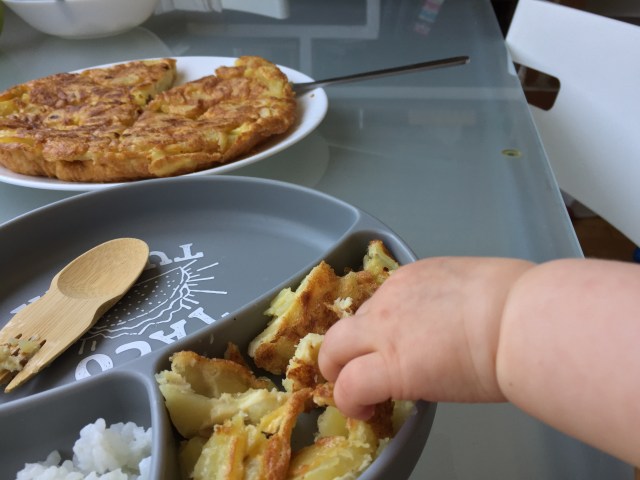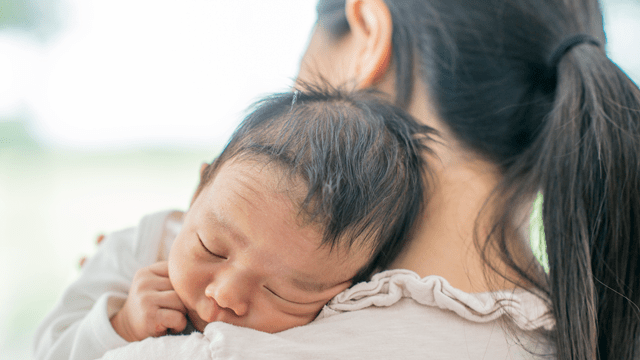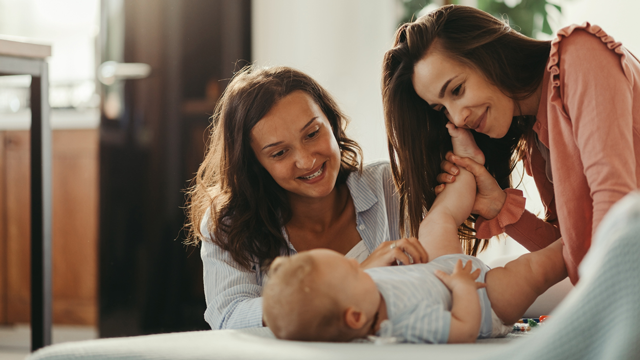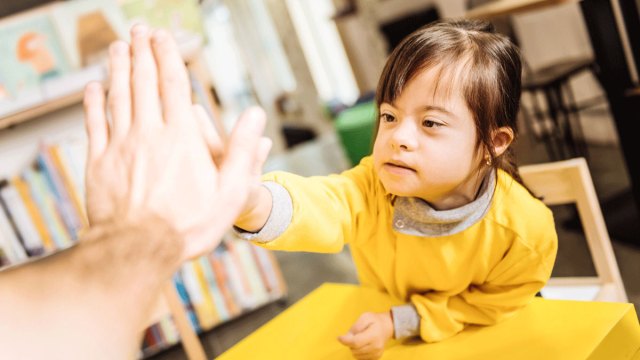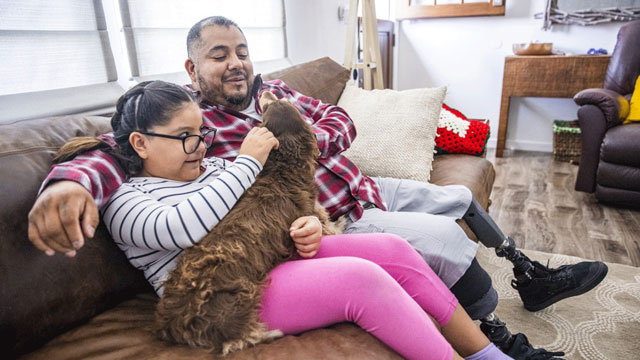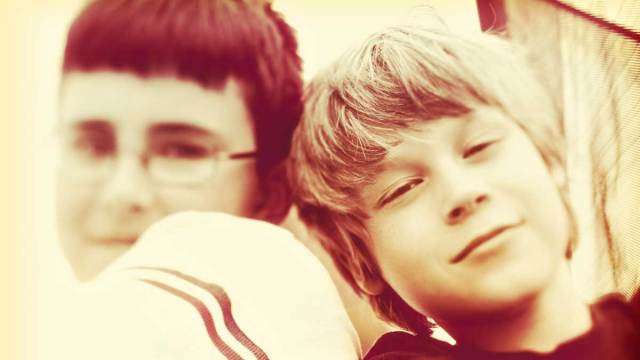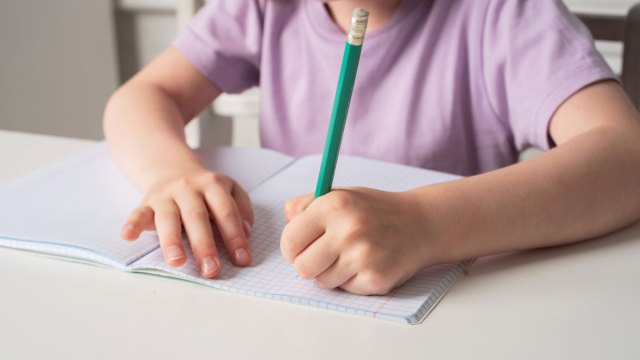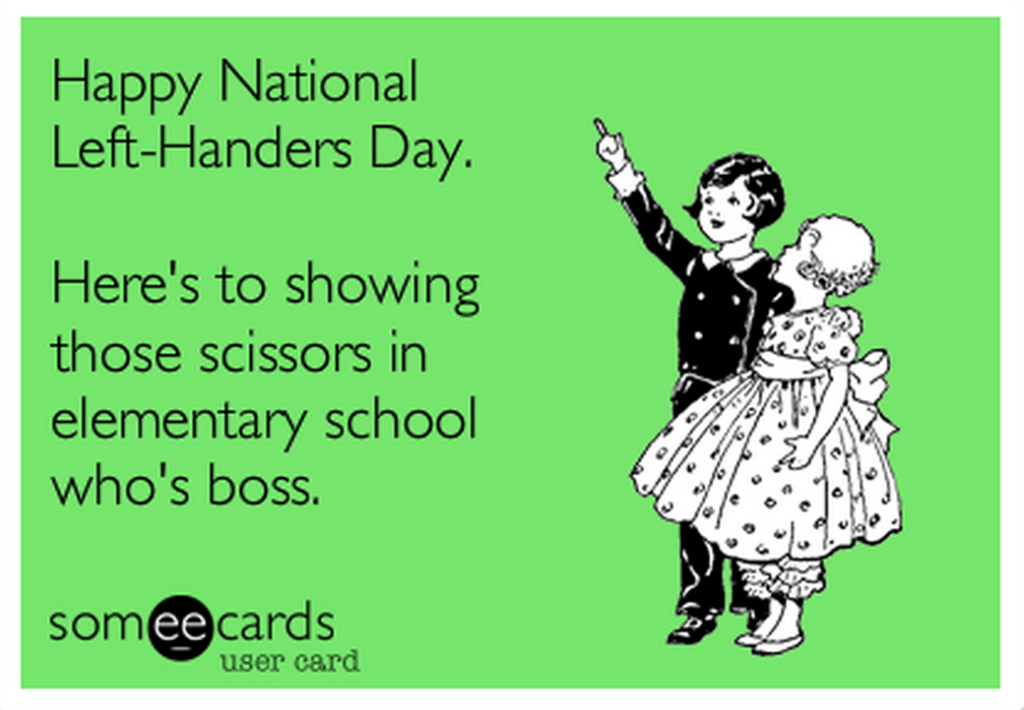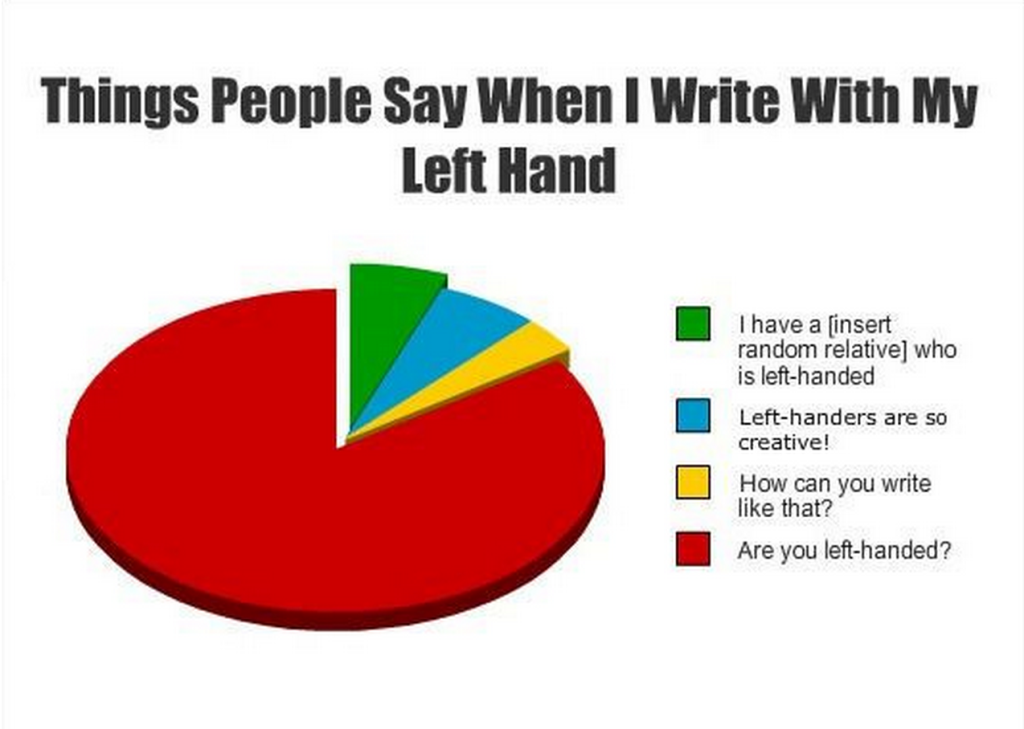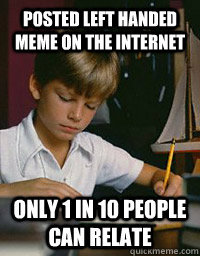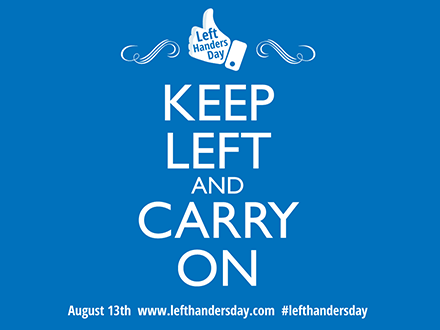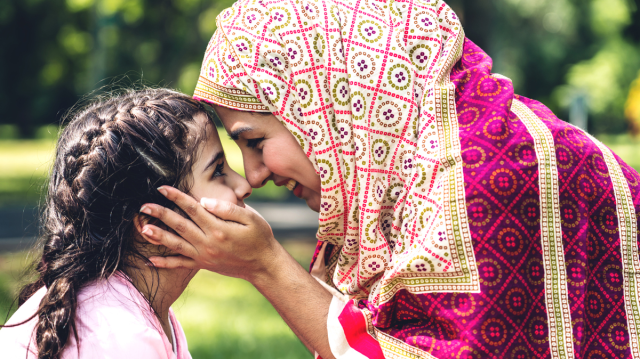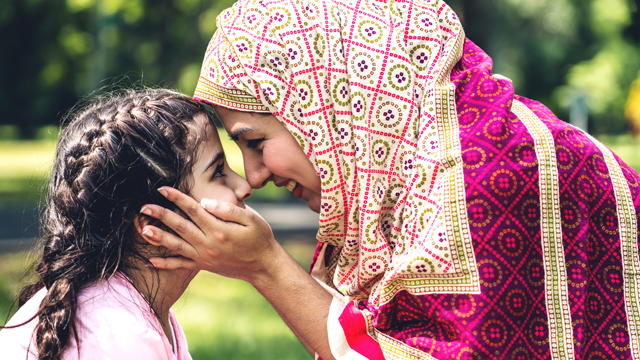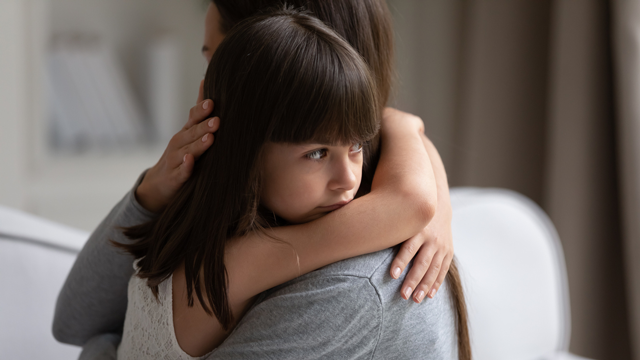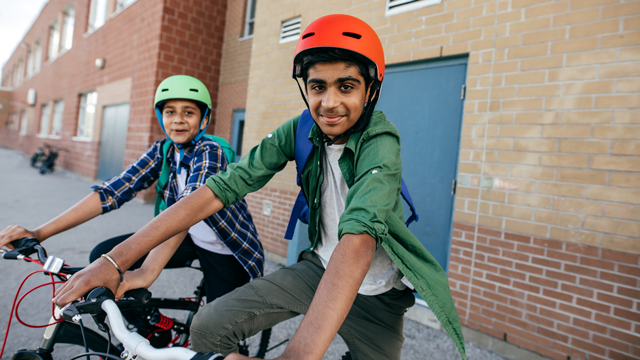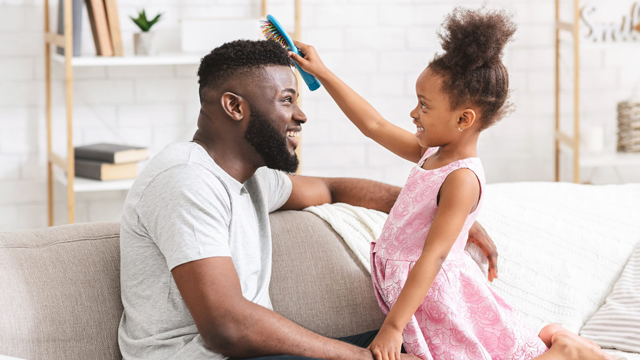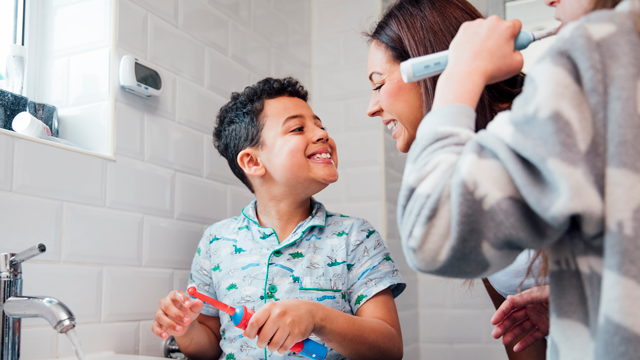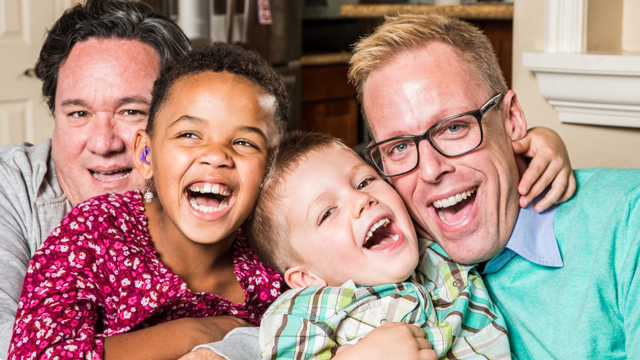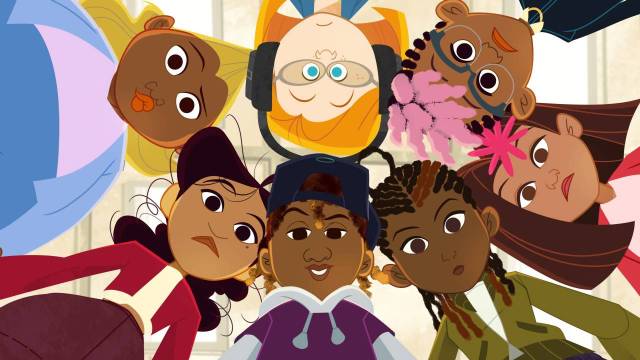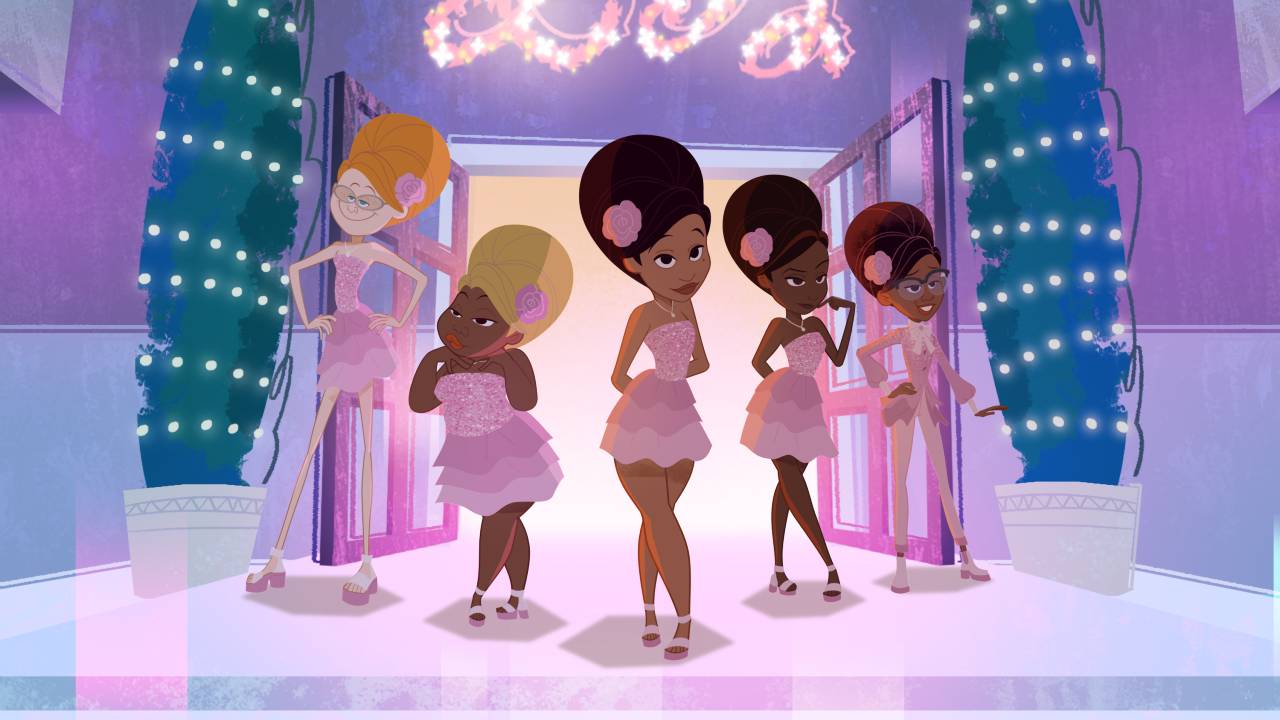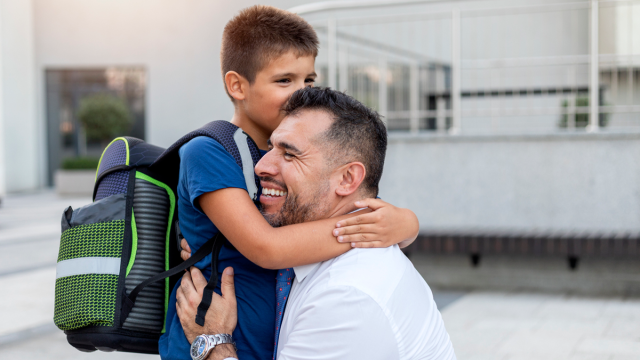At 19 months old, my daughter has the appetite of a fully grown adult. She eagerly downs adult-sized plates of healthy foods without complaint. How? I owe it all to baby-led weaning—or BLW.
My husband and I don’t make a habit of spoon-feeding our child, and we’ve never bought baby food. From the beginning, she’s eaten what we eat—all on her own—within reason.
Before I get into baby-led weaning and why I think it’s the savior of picky eaters everywhere, let me stress that BLW is a decision you should make after talking with your pediatrician. It may or may not be a suitable introduction to solid foods for your child.
So what exactly is baby-led weaning?
Typically babies start eating solid foods around 4-6 months by being spoon-fed purees. Slowly, they build up to chunkier foods until they graduate to solids. Babies learn to swallow food first and chew later.
With baby-led weaning, babies start no earlier than six months with soft solid foods cut into finger-length spears. Think watermelon, avocado, bananas, cooked veggies, or stewed meat.
Babies are allowed to experiment—i.e., play—with what they eat. Manipulating food teaches them how to deal with different tastes and textures, and how to bite or mash food into swallowable pieces.
Is BLW healthy?
Yes! The onus is on families eating well-balanced meals and sharing those meals with their children.
There are a few things to keep in mind though:
- Foods need to be low in salt and sugar, and as with any infant under one, no honey.
- While it can take babies a while—up to a few weeks—to swallow anything, they receive the nutrients they need via formula or breastmilk.
- Parents can incorporate a mix of BLW and purees, but we opted to stick to a strict BLW and breastmilk diet.
Is baby-led weaning dangerous?
BLW is a perfectly safe method of getting your child started on solid foods. A 2016 study by the American Academy of Pediatrics determined that BLW babies are at no higher risk of choking than spoon-fed babies. Technically, you can choke at any time in your life while eating just about anything.
My husband and I took an online infant safety class before our daughter’s first meal. But that’s a safe move regardless of how you choose to feed your child.
Now I don’t want to get into the ins and outs of BLW—you can read up on it here— but I want you to know it’s been one of our favorite parenting decisions.
Why was BLW one of our best decisions ever?
It’s made our daughter more independent. From day one BLW babies eat on their own. The method asks that you don’t spoon-feed your child—ever. (Though some people are more strict than others and we’ve had a few occasions where we’ve been more lenient).
BLW babies are expected to be in charge of their food journey. My daughter chooses what she wants to eat and how much of it—within the options that are in front of her. The implications of that set kids up for a life-long positive relationship with food. If she doesn’t want to eat that much one day? Fine. She’ll more than make up for it the next day.
Today, our friends, family, and her daycare teacher repeatedly tell us how good of an eater she is. And it’s true—we’ve avoided a picky eater which we think is due to her being in control of what she eats from the beginning. My child is happily entertained with whatever you place in front of her. That means veggies, fruit, seafood—you name it.
I think that is because BLW kids are allowed (and encouraged) to experience their food. Because they’re eating on their own, it gives babies a chance to pick up their food, mash it, touch it, look at it, and eventually eat it.
What this encourages (aside from making a mess) is for kids to play with different textures, shapes, tastes, and colors.
But it also allows kids to experience food in the same form we eat it as adults. I don’t eat pureed carrots, or meat, or any mixture thereof. But I do eat solid carrots and meats. BLW allows kids to observe, touch, and taste whole foods the way they will encounter them as they get older.
Fussy eaters often complain about the differences in texture or taste. BLW nips that in the bud by having babies encounter those differences from the get-go.
The Result? We Have Stress-Free Meal Times
Because my daughter devours whatever we give her and because we don’t have to spoon-feed her, mealtimes are family time. There’s no need to feed the baby first and then eat once she’s gone to bed. The three of us get to enjoy our meals at the same time. And as babies learn through observation, BLW has helped our daughter be a part of a daily, communal family dinner.
The Unexpected Part? It Saves Time & Money
Here are the oh-so-fantastic list of things that we appreciate now:
- No extra meal prep
- No need to bring food when we eat out
- No need to buy baby food
To a certain extent, it lets us live like we don’t have a baby. We enjoy our meals, we still eat out and we eat a healthy, grown-up diet.
I Can’t Imagine Doing It Any Other Way
BLW has made my daughter into the little devourer of food that she is. I’m proud to see her happily munching away at every meal. I’m relieved we can take her virtually anywhere and know she’ll be fine. But my favorite part? Sitting down as a family to a very normal, calm meal.
BLW has changed my whole outlook on getting kids started eating. It boosters a love for a healthy, varied diet while getting kids acquainted with food on their own terms.
Yes, it’s a personal decision, but I’m proud to say baby-led weaning has been a winning choice for our family.
